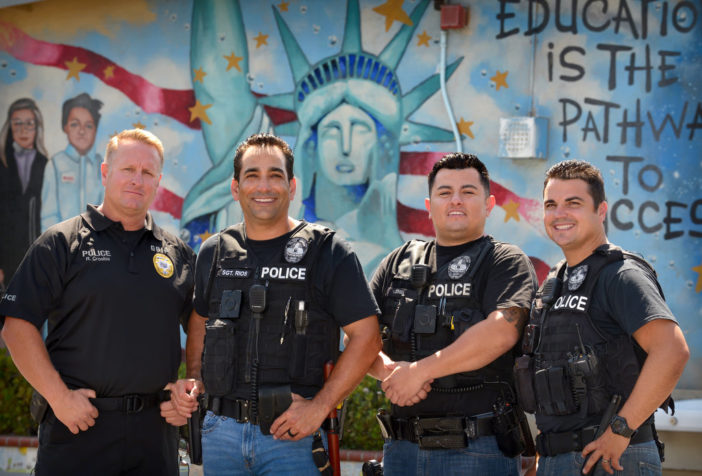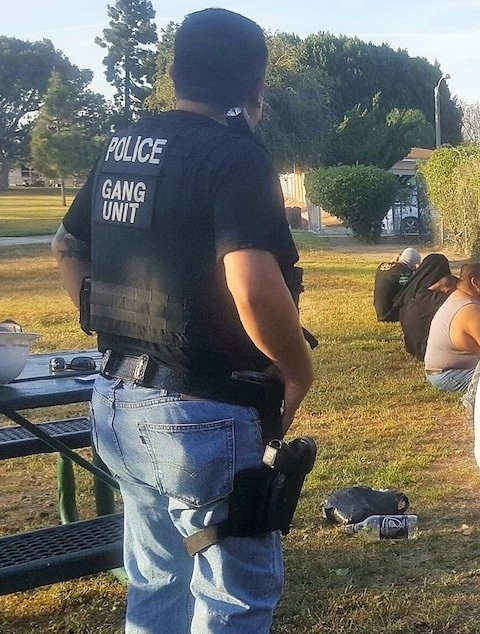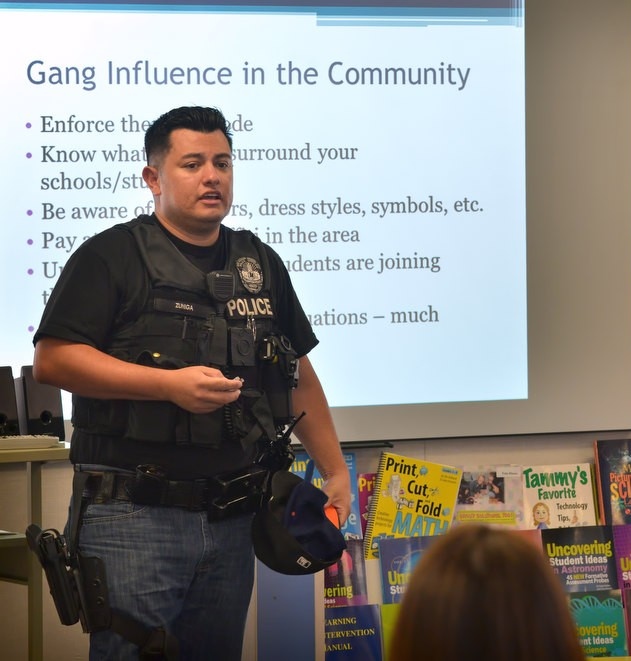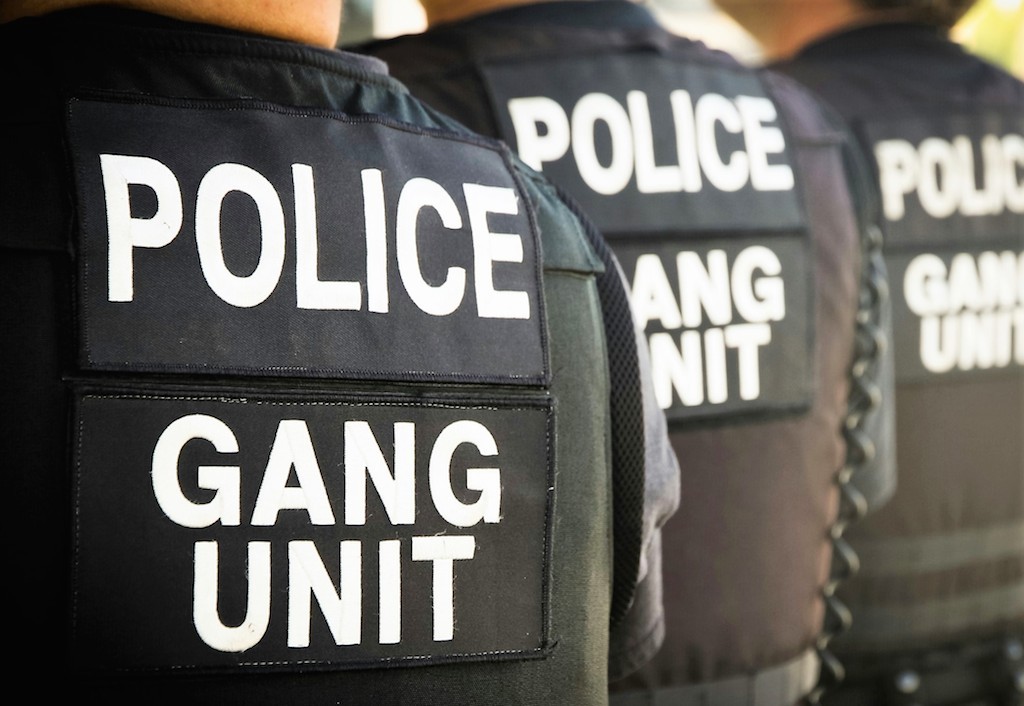Detectives in the Fullerton Police Gang Unit deal with a generations-old subculture of individuals who live by their own set of rules and protocols, mostly aimed at protecting their turf through violence and intimidation.
In order to suppress the activity, the Gang Unit may be the most multifaceted of all the FPD’s Investigative Units.
Gang Unit Detectives are investigators, street cops, enforcers of the law, mentors and confidants all wrapped into one.
“I’ve seen how the gangs have taken over some of these communities,” said Det. Joseph Zuniga, on the job in Fullerton for 11 years and in the Gang unit since 2013. “All our sectors that have crime, have a gang.”
Fullerton is home to three gangs and more than 400 documented gang members, with about 200 of them being active, said Sgt. Tony Rios, the Gang Unit’s supervisor.
Made up of four full-time Detectives, a Supervising Sergeant, a Deputy District Attorney, a District Attorney Investigator and an Orange County Deputy Probation Officer, the unit’s main roles involve suppressing gang activities, investigating gang related crimes and making arrests.
From July 1 through Sept.8, the Gang Unit has made 120 arrests.
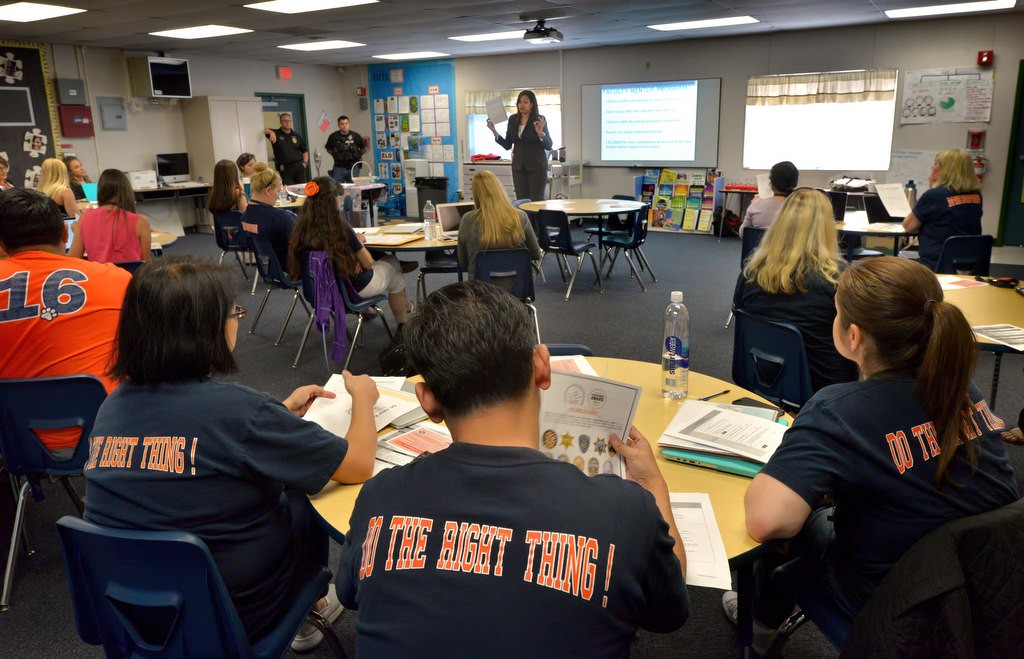
Deputy District Attorney Tamika Williams talks to a group of teachers and administrators at Valencia Park Elementary School about the GRIP (Gang Reduction Intervention Partnership) program, whose goal is preventing minors from becoming involved in local street gangs. Photo by Steven Georges/Behind the Badge OC
“This unit takes more people to jail than any unit in this department,” Rios said. “There is no legal reason to be in a gang. They do drug dealing, robbery, burglary … all for the betterment of the gang.”
While a gang detective must always be on guard when dealing with gang members, maintaining a rapport is also necessary, Zuniga said.
“You’ve got to work with them,” Zuniga said. “You’ve got to talk to them … and it’s give and take.”
Detective Billy Phu, an FPD officer since 2008, including the past two years in Gangs, said gang members often embrace a misguided notion that they play a positive role in their neighborhoods
“If you ask them, they think they are protecting people in their own community, but the ironic part is that it is the people in their very own community that they are tormenting,” Phu said.
But police have effective resources at their disposal to combat gangs.
The state’s Street Terrorism Enforcement and Prevention Act, commonly referred to as the STEP Act, calls for a separate felony charge for crimes committed for the betterment of a street gang.
“If you go out and assault somebody, you might get, say, four years in prison,” Phu said. “But with that gang enhancement you might be looking at six or eight years in prison.”
A gang injunction, approved by the court in 2011, is also in place against one of Fullerton’s gangs.
The injunction may make it a crime for members of that gang to be involved in certain activities within a specified “safety zone.”
They can be arrested for a multitude of violations, including drug or alcohol use, trespassing and violating a 10 p.m. curfew within the designated Safety Zone.
“You have a separate charge of violating the court order, plus you could add the gang enhancement charges, depending on what they are doing,” Phu said.
While injunctions and enhancements are used to suppress gang activities and prosecute offenders, the goal of the Orange County’s Gang Reduction Intervention Partnership (GRIP) involves trying to keep kids out of gangs in the first place.
GRIP is a collaboration among law enforcement, the District Attorney’s office, Community Services and the Orange County Probation Department.
The program, which is in place in four elementary schools in Fullerton, focuses heavily on education programs for students, teachers and parents along with mentoring youngsters.
The FPD Gang unit has 80 school presentations scheduled for this school year as part of the program.
“It’s a huge investment for this unit,” Rios said. “We understand that if we put in the work now, hopefully, it pays off where we are not dealing with some of these kids caught up in gangs down the road.”
Incentives are a big part of GRIP.
For meeting certain goals, GRIP youngsters get rewards, such as trips to Angels’ games, holiday dinners and field trips.
“These kids … they are trapped in a bubble and they don’t know anything else in the outside the world,” Zuniga said. “This is why we have the GRIP program. You got to pop that bubble for them and show them that there is something else.”
 Behind the Badge
Behind the Badge
